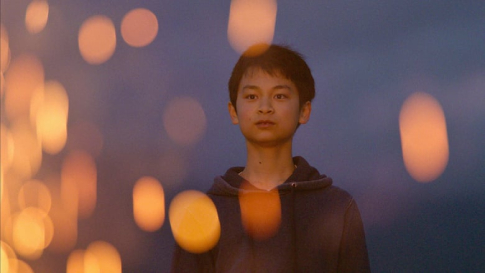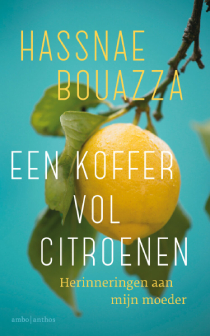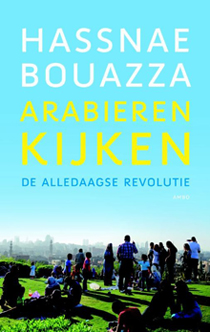That weekend I went to Rotterdam and saw a bunch of Japanese movies
Peter Breedveld

The most interesting movies on the programme of the Camera Japan Festival, held in Amsterdam last weekend and Rotterdam the weekend before that, I had already seen elsewhere.
The new movie by one of my favorite directors, Kurosawa Kiyoshi, Wife of a Spy, I am still undecided about. The story, themes and execution are flawless and Aoi Yu plays the main part and she can do anything, she plays the ideal daughter in law as convincingly as an uncontrollable animal, but there’s something bloodless about the movie, and I find the digital camera-work too sterile. A certain extent of detachment is one of Kurosawa’s trademarks, it seems to enlarge the horror of what he’s showing, but in Wife of a Spy he seems to overdo it, giving everything the feel of a stage-play. I will have to watch it again.
Last of the Wolves is one of my favorites of the year so far, a furious and exciting yakuza flick, sequel to Blood of the Wolves by the same director, Shiraishi Kazuya. Fast-paced, engrossing and hyper-violent. Nothing innovative here, just really well done.
Sono Sion’s Red Post on Escher Street is a film about the crazy, frantic chaos of film-making as only Sono can do. Smart, weird and fast-paced, more or less done like a crime action movie. Much better than the American movie Sono did this year with Nicolas Cage, as entertaining and beautifully done that is.
Fukunaga Takeshi’s Ainu Mosir should be shown at schools, colleges and universities world-wide. It’s about Japan’s indigenous people, the Ainu, but I think it tells the story of any minority in any country around the world. The movie deals with a boy, Kanto, who is compelled to choose between his own culture and identity and the dominant Japanese culture which pressures him to adapt and assimilate. The universality of it is in the fact that every fourteen year old child has to deal with a society eager to recruit and brainwash them.
A telling scene in this great movie plays in a shop for tourists, which kind of serves as a gateway to the Ainu world, where at the back Ainu people do Ainu things, while at the front there’s the outside world, where Japanese tourists show only interest in the keep-sakes the Ainu have to sell, but not in who sells them.
Georama Boy Panorama Girl is a wholly original, quirky, unsentimental teenage romance drama by female director Seta Natsuki, set in Tokyo, beautifully filmed and impressively acted, especially by Yamada Anna.
In It’s a Summer Film (Matsumoto Soshi) a schoolgirl who dotes on Zatoichi movies (like me!) coaxes a guy from the future to star in her samurai film. It’s a charming film but slightly awkward and clunky, with a great analysis at the end: “samurai flicks are basically romances” (Sword fight! Sword fight!).
Luckily the festival offered plenty of other interesting movies for me to check out, the most interesting of which I found Under the Open Sky by female director Mishikawa Miwa, known for the quirky humor with which she tackles serious issues, without in any way making light of them.
The movie is about a middle aged yakuza trying to get his life back on track after being released from prison. Which is made difficult for him by, among other things, two journalists who want to make a reality TV-show about him and by the rigidity of a society which doesn’t forgive a man for his past missteps.
Who better to play this man than Yakusho Koji, who plays in many of Kurosawa Kiyoshi’s films and however tragic his parts are, always has an air of irony about him, like he’s mocking everything and everybody, most of all himself. It prevents Under the Open Sky from becoming a heavy melodrama and we can sympathize with Yakusho’s character, although he’s a murderer, without romanticizing the yakuza, who are instead depicted as a rather pitiable bunch, tragi-comedic leftovers of an era long gone. Mishikawa and Kiyoshi can do this and avoid caricaturizing to make a warm, touching humanistic movie about loneliness. I absolutely love this movie.
Another murderer is the main character in the sequel to the spectacular action comedy The Fable, which I saw two years ago. In The Fable: The Killer Who Doesn’t Kill Okada Junichi plays the autistic yakuza hitman again, still in hiding, still strictly forbidden by his boss to kill, but of course trouble comes to find him.
I enjoyed myself tremendously with this movie and it has two of the most spectacular action scenes I have ever seen. One at the beginning, which involves nothing more than a car on the loose in a parking garage with a girl stuck in it and one later on, with The Fable trying to save a little girl at the end of a giant scaffold in the process of crashing down, while fighting off an army of professional killers. It’s like James Bond but without the budget yet with a trillion yen worth of inventiveness and just great camera work.
Still, some choices seem incomprehensible to me. A few of the recurring jokes from the first film return in this sequel. For instance, The Fable still loves that dumb children’s show starring a man-child named Jackal Tomioka, who has, however, traded in his ultra silly jokes for downright misogynist creepiness and apparently reached superstar status, among children! Jackal denigrates a woman in every episode of his show and The Fable goes like “That’s the way, Jackal! Right on!” Which is not good.
Also the film goes on quite a while after that spectacular second action scene, so I expected a climax even more spectacular and that doesn’t come. The film ends in a somewhat disappointing conclusion with characters acting in ways I thought didn’t make sense.
But still, one of the finer action films of this year and I hope there will be a third Fable. In which Jackal dies.
Female director Ogawa Sara made The Goldfish: Dreaming of the Sea, a tender, naturalistic film about an 18 year old woman who grew up in a children’s home where she now takes care of children herself. She takes a girl under her wing who seems to need extra care and along the way we discover her own vulnerability. Ogawa is an apprentice of the great Kore-eda and it shows. This film is documentary like, with understated emotions and the focus not on the pitiability of the characters, but on their strength and will to live and love. A very beautiful little gem.
Engrossing is a satire by Araki Shinji, The Town of Headcounts. It’s about people joining a cult where they are freed of all their debts, misery and troubles, but also of their identity, individuality and freedom to go wherever they want and that turns out to be a bigger price to pay that they realized. The movies is creepily funny, tightly directed, sublimely acted and absolutely captivating.
I’ve seen a few films by Okita Shuichi of which The Story of Yonosuke is one of my favorite films ever. Okita approaches existentialist issues with a warm tenderness, which is unusual for cynical Europeans like me but seems to be a trademark of many Japanese filmmakers, like the aforementioned Mishikawa Miwa. It’s almost Christian: to be aware of the world’s evilness and yet believe in the power of compassion. Japanese can be harsh, but are not wont to cynicism. Of course you are now all thinking of Kitano Takeshi.
However, Okita’s latest, Ora, Ora Be Goin’ Alone, is charming and intelligent but it didn’t do much for me. It’s about an old lonely woman accompanied by three different aspects of her own personality which only she can see, all played by men. She remembers her life and has her imagination play out satirical, dream-like stage-plays in her own room. These are funnily sarcastic and there is some slight social criticism, but I think the film lacks real bite. Aoi Yu is in it though, playing the young version of the old woman.
Absolutely brilliant I think is the low-budget science fiction comedy Beyond the Infinite Two Minutes by Yamaguchi Junta. It’s a very clever take on time travel, with a guy discovering that the security system in his café allows him to travel two minutes into the future and back. Together with his employees and clients he figures out to make this a get-rich-quick scheme, it all gloriously blows off the rails, they find themselves in trouble with the yakuza and have to be impossibly smart to save their own asses. It’s extremely smart, very funny and a little mind-boggling, and above all it’s as cute as a button. The charm of this film is simply irresistible.
I hated Motoki Katsuhide’s Angry Rice Wives, a historical drama based on true facts, in which the women of a poor fishing village rebel against the rich villagers speculating on rice prices, making it impossible for them to feed their families. I was looking forward to this, but it turned out a badly written, badly directed and badly acted paint-by-numbers film in which the women are brave and noble and the capitalists evil, and of course they are pederasts, too. I knew from the start this was a disaster, when a gorgeous young woman with some dirty smudges on her face to make her look poor, gets a speech by her husband who tells her they will have to work hard and suffer until their bodies give up. I mean come on, do we have to have spelt out everything? It appears we do, or that the scriptwriters thinks we do, making this an unbearable film.
Fujimoto Akio’s Along the Sea is equally terrible, about three Vietnamese women working illegally in Japan, getting exploited by Japanese and Vietnamese alike. They are underpaid, scolded by everybody and they have to do boring, dirty work. Because they are illegal, one of them is sent away by the staff of a hospital she turns to when she is pregnant. The way this is portrayed is so tedious, so absurdly boring, that I fell asleep halfway the film. When I woke up the pregnant girl was taking her time eating soup, spoonful by spoonful, taking her time drinking water, taking her time getting to bed and then the film ended and I was like: “okay.”
I regret not having bought a ticket for the stop motion animation film Junk Head by Hori Taskahide. People go wild about it. Stop motion is my favorite, but to be honest, most animation movies bore me to death. Stop motion works for me as a special effecxt in horror films (way more convincing than CGI) but for a hundred minutes straight? Still, I think I would have enjoyed this.
Follow my hashtag #FrontaalNaaktFilm on Twitter. Support this site by donating a few bucks.
Film Reviews, Peter Breedveld, 05.10.2021 @ 06:39







 RSS
RSS